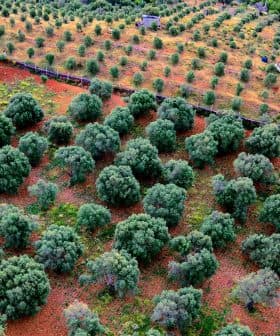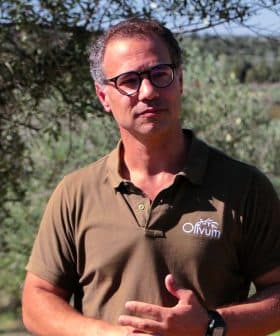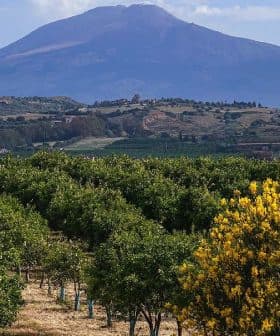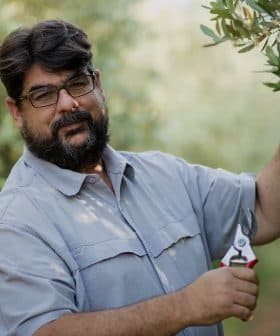Weakened Gulf Stream Will Have Major Impact on European Agriculture, Scientists Predict
Weakening ocean currents will likely increase incidences of extreme weather events, researchers warn, particularly in the Mediterranean Basin.
 7.4K reads
7.4K readsThe weakening Atlantic Meridional Overturning Circulation (AMOC) is causing a major change in climate conditions in the Mediterranean basin, impacting agriculture and weather patterns in Spain and Italy. The effects of the weakening AMOC on the climate are expected to lead to more extreme weather events, hotter and drier summers, and challenges for olive oil production in the region.
The “engine” behind the stability of the conditions that have helped Mediterranean farmers grow their crops for centuries is undergoing a major change.
Spain and Italy are among the first places to experience a new and unpredictable climate phenomenon that is rapidly extending across the Mediterranean basin.
What is happening is connected to the ongoing weakening of the powerful ocean currents in the Atlantic, which bring huge amounts of warm water from southern and middle latitudes to the European coast.
It is weakening. It is almost gone, and this causes the two masses, cool and warm, to clash over southern Europe with the consequent extreme weather events we are more and more often witnessing.
According to new research, the effects of the weakening Atlantic Meridional Overturning Circulation (AMOC) on the world’s climate are huge and will impact at least three continents.
The study authored by the German climatologist Niklas Boers and published in Nature warns that the AMOC is reaching a critical transition, a tipping point beyond which even stronger climate effects are to be expected.
See Also:Researchers Work to Identify Olive Varieties Best Adapted to Higher Temperatures“Looking at the evidence of the AMOC weakening is relevant because it tells us that we face a difference which is shrinking between temperatures among waters in the tropical areas and those in the northern polar region,” Gianmaria Sannino, an oceanographer and director of the climate modeling and impact laboratory at the Italian National Agency for New Technologies, Energy and Sustainable Economic Development (ENEA), told Olive Oil Times.
AMOC is driven by temperature. The cold northern region of the ocean attracts the warmer waters, creating a stream that has played a pivotal role in regulating Earth’s climate for millennia.
“It is the engine of climate on Earth since oceans are the most relevant climate regulator,” Sannino said. “Ninety-three percent of the heat produced by global warming is found in the oceans.”
“While changes in the atmosphere often come abruptly and impact populations and crops, and are easily visible, those in the oceans are harder to see, build up slowly and bring huge consequences to the whole system for much longer periods of time,” he added.
The new study confirmed the findings of several previous ones regarding how major changes in the AMOC could bring about a more rapid rise in sea levels on the east coast of the United States, persistent droughts in West Africa and substantial cooling of northern Europe.
While many other effects are to be expected, the first region to feel the change will be the Mediterranean basin.
“What climatologists have discovered is that southern Europe is a very specific climatic hotspot, where climate change effects are especially evident and happen before than elsewhere,” Sannino said.
The basin and its agriculture have long enjoyed the moderating presence of the Mediterranean Sea.
“Rome has the same latitude as Boston, but the climate is sharply different because Rome is in the middle of a very big lake,” Sannino said. “This difference will be lost because of all the energy we released in the atmosphere and in the oceans since the pre-industrial era.”
Regional climate data, which informed the United Nations’ Intergovernmental Panel on Climate Change (IPCC) report, show that the Azores High, a high-pressure weather system that influences the climate of Europe and North Africa, is almost gone as a result of the weakening AMOC.
During summer, the Azores High keeps the cooler northern air masses separate from the hot African circulation, creating moderately warm seasons that favor agriculture and farming.
“It is weakening. It is almost gone, and this causes the two masses, cool and warm, to clash over southern Europe with the consequent extreme weather events we are more and more often witnessing,” Sannino said.
If nothing will be done to reduce global emissions and curtail the effects of climate change, climatologists expect temperatures in the Mediterranean basin to rise up to 5 ºC by the end of the century, well above the expected global projections.
Spain and Italy, the world’s two largest olive oil producers, are at the forefront of this change. Droughts and desertification already threaten their agricultural sectors and are expected to become even worse.
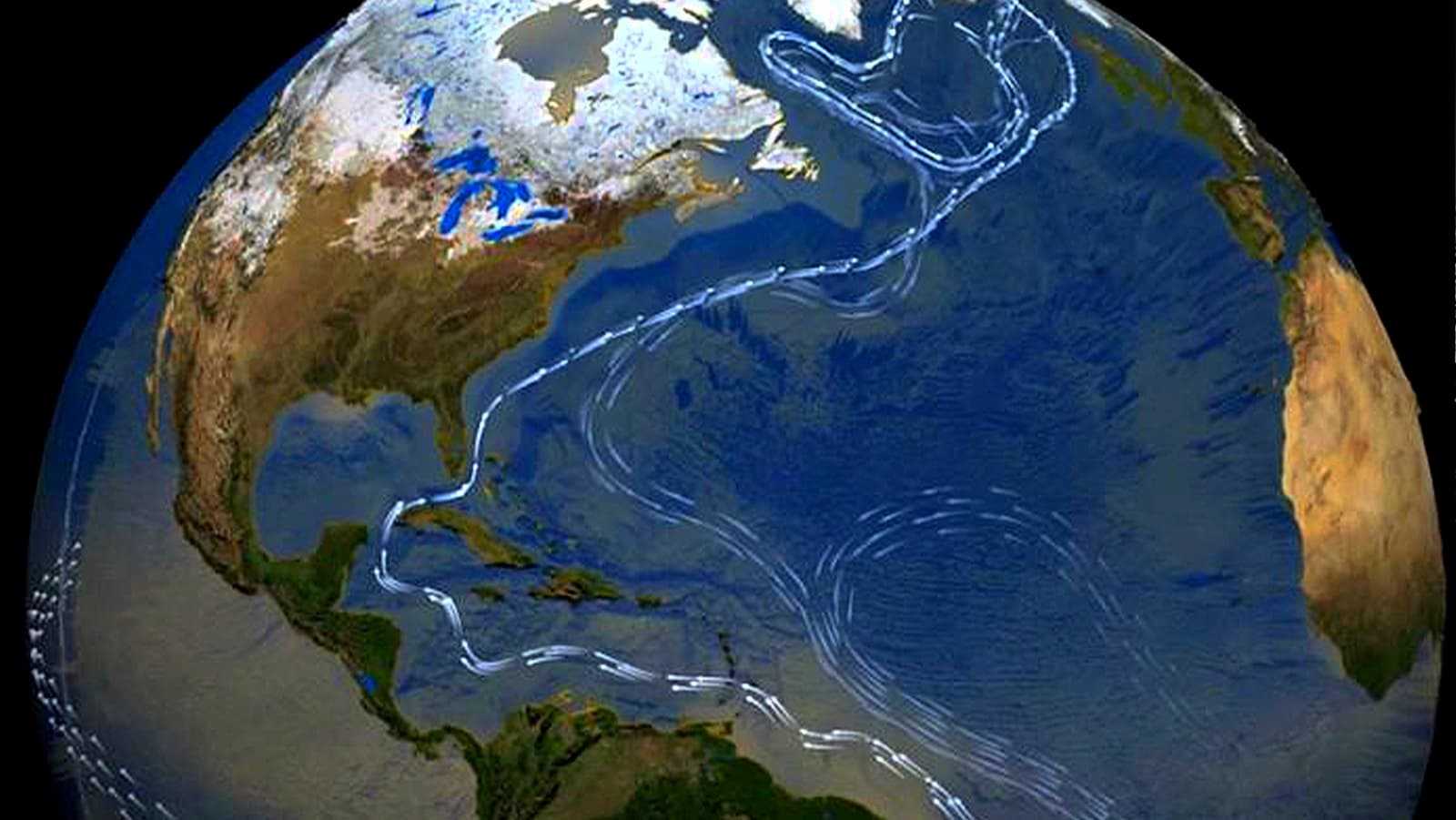
NASA
“The heatwaves we had this summer are just the beginning,” Sannino said. “If we currently consider these heatwaves abnormal since they happen every few years, by the end of the century we will have heatwaves that will not last a few days, but for several weeks. They will be hotter and will occur in a summer that will have an early beginning and a late ending.”
Longer, hotter and drier summers will have a profound impact on olive growing. Already, hotter and drier springs in Andalusia, the world’s largest olive oil-producing region by a large margin, are leading to earlier flowering in olive trees and increased damage from heat stress events.
Additionally, a 2020 study conducted by researchers in Israel demonstrated that higher-than-usual temperatures affected olive fruit growth and weight, oil accumulation in the fruit and its chemical composition.
A separate study in Andalusia showed that hotter and drier conditions in the southern Spanish region could substantially decrease the ability of seven endemic varieties, including the prodigious Picual, to grow naturally there.
Francesco Muschitiello, a geographer specializing in paleoclimatology at the University of Cambridge, told Business Insider that “a shutdown of the AMOC is the easiest, most efficient way to disrupt the climate system.”
“Ninety-five percent of the time, when we talk about rapid climate change, it’s associated with AMOC,” he added.
According to Boers, as quoted by Business Insider, “it typically took a few hundred to a few thousand years for the AMOC to go back to the strong mode.”
“If the AMOC were to collapse to the weak mode at some point in the future, it would indeed be very hard to bring it back to the strong mode,” he added.
Climatic conditions will keep changing over the next decades and that will require farmers to adopt new efforts in order to guarantee their yields and income.
“Precision and technological agriculture means increasingly will be needed,” Sannino said. “We will have to focus on the sustainable management of the water resources, irrigation and so on.”
“More than any other sector, agriculture is affected by climate change and at the same time, it is one of the most relevant contributors to the causes of the change itself,” he added. “The world needs a smarter and more sustainable agriculture to face a weather becoming more unpredictable.”
Share this article




